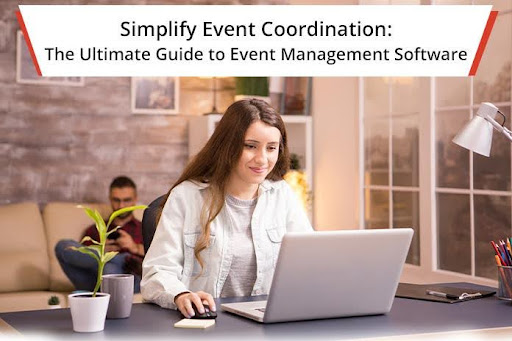In today’s fast-paced world, organizing events can be a daunting task. Whether it’s a corporate conference, a wedding, or a community fundraiser, the logistics involved in planning and executing a successful event can quickly become overwhelming. Fortunately, technological advancements have revolutionized how events are coordinated, with event management software emerging as a powerful solution to streamline the process. In this comprehensive guide, we will explore the benefits of event management software, key features to look for, best practices for implementation, and future trends shaping the industry.
Understanding Event Management Software:
Event management software is a digital tool designed to simplify and automate various aspects of event planning and execution. From attendee registration and ticketing to venue selection and agenda planning, these platforms offer a centralized solution to efficiently manage all aspects of an event. By leveraging the capabilities of event management software, organizers can save time, reduce manual errors, and deliver a seamless experience for attendees.
Key Features of Event Management Software:
Event management software typically offers many features to support the entire event lifecycle. Some of the key features to look for include:
Centralized Event Planning:
These platforms provide a centralized hub where organizers can manage all aspects of their event, including tasks, timelines, and budgets.
Seamless Registration and Ticketing:
Event management software simplifies the attendee registration process, allowing participants to sign up and purchase tickets online easily.
Venue and Resource Management:
Organizers can use event management software to search, compare, and book venues, as well as manage resources such as equipment and catering services.
Agenda Planning and Scheduling:
These platforms enable organizers to create detailed event agendas, schedule sessions, and manage speaker logistics.
Communication and Collaboration Tools:
Event management software facilitates communication and collaboration among organizers, speakers, sponsors, and attendees through features such as email notifications, messaging, and document sharing.
Choosing the Right Event Management Software:
Selecting the right solution for your needs can be challenging with a wide range of event management software options. When evaluating different platforms, consider the following factors:
Scalability and Customization:
Choose a solution that can scale with your event requirements and offers customization options to tailor the software to your specific needs.
Integration Capabilities:
Ensure that the event management software can integrate seamlessly with other tools and systems you use, such as CRM software, email marketing platforms, and payment gateways.
User-Friendly Interface:
Look for an intuitive and easy-to-use platform for organizers and attendees with drag-and-drop functionality and mobile responsiveness.
Mobile Accessibility:
Opt for event management software that offers mobile apps or responsive web interfaces, allowing organizers to manage events on the go and attendees to access event information from their smartphones or tablets.
Implementing Event Management Software:
Once you’ve selected the right event management software for your needs, planning and executing a successful implementation strategy is essential. Here are some best practices to consider:
Training and On boarding:
Provide comprehensive training and on boarding sessions for your team to ensure they are familiar with the software’s features and functionalities.
Data Management and Security:
Implement robust data management practices to protect sensitive information and ensure compliance with data privacy regulations such as GDPR.
Testing and Troubleshooting:
Conduct thorough testing of the event management software before launching it to identify any bugs or issues that need to be addressed.
Feedback and Continuous Improvement:
Gather feedback from organizers, speakers, sponsors, and attendees after the event to identify areas for improvement and enhance the software’s capabilities for future events.
Case Studies:
To illustrate the effectiveness of event management software in action, let’s explore two real-world case studies:
Company X:
Company X used event management software to organize its annual conference, streamlining attendee registration, managing speaker logistics, and coordinating networking sessions. As a result, the event was a resounding success, with increased attendance, higher participant satisfaction, and improved ROI for the company.
Non-Profit Organization Y:
Non-Profit Organization Y leveraged event management software to plan and execute its fundraising gala, automating ticket sales, coordinating volunteer schedules, and tracking donations. The software enabled the organization to exceed its fundraising goals, engage donors more effectively, and strengthen relationships within the community.
Future Trends in Event Management Software:
Looking ahead, several trends are shaping the future of event management software:
Artificial Intelligence and Predictive Analytics:
AI-powered features like chatbots and predictive analytics will enhance event planning and decision-making processes, providing organizers with valuable insights and recommendations.
Virtual and Hybrid Event Solutions:
With the rise of remote work and digital events, event management software will continue to evolve to support virtual and hybrid event formats, offering features such as live streaming, virtual networking, and interactive content.
Conclusion:
In conclusion, event management software offers a comprehensive solution to simplify event coordination and deliver exceptional experiences for organizers and attendees. By leveraging the capabilities of these platforms, businesses, non-profit organizations, and individuals can save time, reduce manual errors, and create memorable events that leave a lasting impression. As technology advances, event management software will play an increasingly vital role in shaping the future of event planning and execution. So why wait? Start simplifying your event coordination process today with the ultimate guide to event management software.


